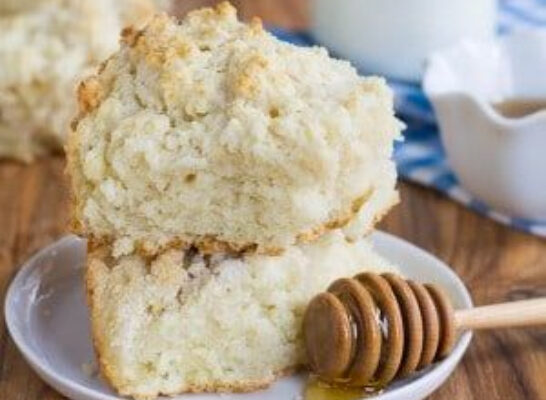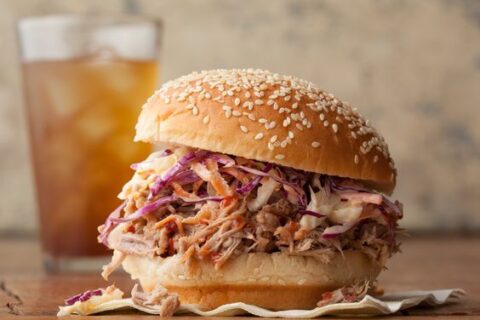Food defines a people. Italians are known for their delicious pasta dishes. The Germans have various pickled and smoked foods. The French are world renowned for their exquisite cuisine. The Chinese and the Japanese have dishes that share similarities, and yet, they are very distinct form one another. Of course, the South has her own food, as well. Anyone who does not think being Southern is an ethnicity, I dare them to find defining “Yankee” cuisine. Oh, you can catch a ‘lobstah’ and boil it? Bless your heart.
Being a Southern woman requires you to know how to cook. It is engrained in you as a little girl. Half of our young lives are spent around a kitchen, watching mama or grandma prepare supper. When you finally get your own kitchen, it is a station of pride. Food is life and Southern food is culture personified.
Southern food is more than just sustenance. It is a story of a people – our people. The South is a region that has had to endure through hardships imposed by Yankee invaders and a federal leviathan that has periodically used its full weight to crush us. Southern food tells that story. It is a story of our people overcoming poverty. Yankees left us horse feed – black eyed peas – and we made them part of our annual good luck New Year’s meal. While Yankees buy the prime cuts of steak, we keep the brisket, the cheapest cut of beef, and our Texas kin make it the tastiest part of the cattle. You give North Carolinians pork loin and vinegar, and they will win you over with pulled deliciousness. Our humble ingredients tell the story of a proud people who do not allow our poverty to keep us down. We are Southerners, and our food describes a people who do not simply endure – we win.
This brings me to the simplest dish of the Southern kitchen: the homemade biscuit.
The biscuit is both rich and poor at once. It is so simple, yet so defining. Every Southern woman should have her own biscuit recipe – whether passed down generationally or made from her own experiences in a kitchen. All that is required is flour, butter, milk, and patience. They can be eaten on their own, accompany a Thanksgiving feast, form the base of “biscuits and (sausage) gravy,” or made into a sandwich. When we were poor, I would make a batch of biscuits to fill our children’s little bellies. Some wanted just butter, others wanted jelly, and yet others, ate them plain. But a Southern biscuit – whether you are a millionaire or live in a trailer – is the universal, staple food of any Southern home.
When I was a girl, I would watch the men come in from the farm in South Alabama, grab my grandmother’s biscuits with their field warn hands, and set back to work. She made biscuits that were intended to stick to the ribs and sustain the men all day during the growing season. Years later, it was my turn.
When I was eight years old, my daddy told me, “If you want a real man, you’ll need to know how to make biscuits.” My grandmother showed me how. Today, I have a real man – hopefully for more than just my biscuits.
Today, as a mother and a wife, I make biscuits for our family. When visitors stay at our home for the weekend, they get biscuits, too. This simple little Southern tradition has been passed onto our girls. The girls do a very good job, but the Queen of the Kitchen still rules biscuit making (for now). I look forward to watching their own “real men” enjoy biscuits handed down generationally. The most Southern thing a Southern mother can do, is teach Southern food to her Southern children to make for her Southern grandbabies. That starts with a biscuit.
At that, I will share my biscuit recipe with you. Y’all enjoy making them. Thank you for reading my little piece. God Bless You and God Bless Dixie!
Cat Head Biscuits (big as a cat’s head…)
Ingredients:
- 2 1/2 cups SR flour, sifted
- 1 stick frozen salted butter, NOT margarine
- 1 cup buttermilk
- 1/2-1 stick of salted butter, melted. Again, NOT margarine
- Some flour set aside for kneading and rolling the dough
Oven temp – 450
Sift your flour into a large bowl. Using a hand grater or parmesan cheese grater, grate the frozen stick of butter. Add the buttermilk. Stir with a wooden spoon. Set aside while you prep your skillet.
Using a cast iron skillet, add about 1/3 cup melted butter. Ensure that the bottom and sides are well coated. Place the skillet in the preheated oven.
Grab your bowl, whatever you plan to use to the cut the biscuits, and prep your biscuit making area with flour. Make sure you have mixed well, but do not over mix. Dump the dough out on your floured surface. I prefer using a plastic cutting mat as it makes clean up a cinch. If the dough is sticky just sprinkle with flour and knead. I like to roll out the dough a bit then fold it over several times (5 – 7: do not over knead) to create layers. When you have finished kneading, roll out the dough to about 1 ½-2” thick or so. Using your cutter, cut out the biscuits. Place each on a piece of parchment while you await your pan to be properly heated. Knead the remaining dough and roll out again once all of the spaces have been used. Once the pan is well heated (10 min or so) remove from the oven carefully placing each biscuit side by side. Make sure they are touching – that way they rise up! The pan should be hot enough that the bottom of the biscuits sizzle when you place them in the hot, melted butter. Do not let the pan get too hot as it will burn the butter. Baste the biscuits with melted butter and pop them in the oven. They will bake for 12-15 min. When they are golden and glorious, remove the pan from the oven and baste with melted butter again. Now, it is time to serve. Enjoy!
Tip 1: If you do not have a hand grater – no problem. Slice a stick of butter into 12-15 pats. Then using a butter knife, cut each pat into 6-9 smaller pieces.
Tip 2: If you do not have buttermilk on hand – no problem. Pour whole milk into your measuring cup and then add 1-2 TBSP lemon juice. Allow to sit for 15 min or so then gently stir or whisk. You will know the milk is ready when it begins thickening.
Tip 3: You can use anything to cut your biscuits. When making true-on Cat Head biscuits you need to use the largest cutter you have. A glass with a large opening will work. I use a cannoli cutter to make humungous Cat Head biscuits. If you want to add a little flare to your biscuits, you can use a holiday cookie cutter. This recipe allows for creativity to include adding chopped rosemary, minced garlic, or sweeten them up with diced peaches and a bit of cinnamon and sugar.
Tip 4: If you do not have a cast iron skillet – no problem. Go back to Yankee land and never attempt to cook this recipe.
-By Dixie O’Hara

O I’m a good old rebel, now that’s just what I am. For this “fair land of freedom” I do not care at all. I’m glad I fit against it, I only wish we’d won, And I don’t want no pardon for anything I done.






Excellent little write-up, ma’am! Thanks for taking the time to write, and edit, and to have it published. I personally believe Identity Dixie would benefit immensely by more articles, written by “real women”[*] such as yourself, being published here. I sincerely hope your writing here inspires other Southern women to follow your lead, not just in the making of homemade busicuits or of preparing other delicious Southern meals, but in also reviving the female Southern Literary voice.
Much of what you wrote in the article put me in mind of the once thriving female Southern Literary voice mentioned above. You have probably read the memoirs of “Georgia Girl,” Eliza Francis Andrews, for example. If so, you know full well that Miss Andrews mentions numerous times in her published memoirs the necessity she and her family found themselves under, following General Sherman’s plunder of their country, of eating their “fair share” and then some of the wretched corn-field pea. But, Miss Andrews also touches on a (related) theme you mention in the aticle at the end of her book. Here is, for those who have not read it as yet, an (lengthy) excerpt therefrom:
I generally don’t pay particularly close attention to the way my wife and daughters prepare our meals. But judging by the picture of the buscuit heading your article (assuming of course it is of one of your homemade buscuits), the two recipes, and the way that you both prepare and cook them, must be very very similar. I’m going to have my wife read your article and recipe in any case, just to compare notes and methods.
Thanks again for taking time to write this excellent article!
***
[*] It is my experience that “real men” usually wind up with “real women” as their “help meets,” and that both are complementary to one another. The opposite of real men and real women are of course “unsexed” men and women, which our Southron ancestors spoke quite a lot about and understood well in the days of yore. See this 1860 article published at the Southern Literary Messenger, as one of many examples:
https://quod.lib.umich.edu/m/moajrnl/acf2679.0031.005/375:6?rgn=full+text;view=image;q1=Northern+Mind+and+Character
Biscuit Nationalism
Biscuit supremacy. This is my ideology.
My momma, from back in the woods in Greene County, Mississippi, made the best biscuits in the world. Her prize-winning’ tomato gravy was wonderful too. Now my wife makes the best.
Are there any good non-compromised, non-Cultural Marxist history books on Southern food, drink, and dining? While I have not been the best with keeping up with my heritage, the very rare popular mentions in today’s media and literature all say that everything Southern about Southern cuisine came almost solely from slaves, with a some influence from Hispanics in the western Southern states and a little indigenous influence regarding ingredients. Obviously, this doesn’t make a lick of sense and sounds like anti-White propaganda rather than popular history.
I’ve been trying to be more cognizant of my Southern heritage ever since the past few years have shown me the need to do so.
Hello Southern In A Lost America,
Thank you for taking the time to read this article and comment. You are right to be skeptical of the revisionist history of Southern food by the largely anti-White, Marxist media. Southern food primarily hails from the British Isles, to include Ireland – the origin of the majority of the Southern peoples. To begin, tackling the issue of slave origins: the types of foods and spices used in the South, such as smoked and pickled meats – especially cultivated pork – is not indigenous to Sub-Saharan Africa. It is uniquely European. Spices were an outgrowth of the need to preserve foods throughout ocean voyages. Again, this made the utilization of spices in food a European, Asian, and Middle Eastern phenomenon, but not a Sub Saharan African one (from which slaves derive). The flavors of Southern food, therefore, are really the result of using recipes for dishes from areas like Ulster, the Midlands, and Athy (areas from which Southerners generally derived during its foundation) coupled with preservation spices for cross Atlantic traffic, until such time that indigenous cultivation could mature. Africans were not frying fish or chicken with breading prior to their introduction by Scots-Irish, who had done so for at least a century before their arrival to the New World.
All that said, other cultures had an influence on Southern cooking, as well. The French influenced Southern cuisine coming out of New Orleans. The Germans influenced Southern cuisine coming out of both Texas and North Carolina. Natives shared native vegetables and crops with the settlers, to introduce items such as hominy corn – grits – to the Virginians. And, yes, the slaves, many of whom were given lesser cuts of meat to utilize, often took those uniquely European dishes and created variations of their own (Soul Food). But understanding the simplicity of Sub Saharan African consumption, the culinary arts as we know them, were non-existent and that makes sense given the primitive nature of the continent both now and especially at the time of the trans-Atlantic slave trade.
I am not sure as to what books may be out there, but I will see what I can dig up. I can say this – many of the dishes Southerners eat are nearly identical to those my family will eat in Ireland. Southerners simply make them better 😉
Deo Vindice!
Padraig Martin